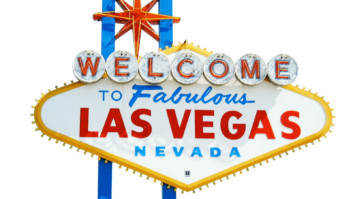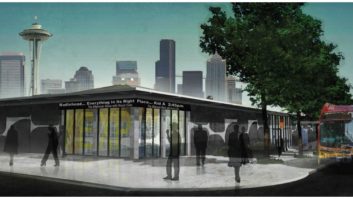Making Money on the Web (the 2001 plan)
Jul 1, 2001 12:00 PM, By John Caracciolo
It is amazing how much change a year brings. At this time last year, the NASDAQ was in the 4,000 range, every radio station in the country had a revenue plan involving the Internet, and Internet advertising was predicted to grow by 70% to 80% in 2001. Everyone had a website plan to make millions.
Radio is the only medium that works hand in hand with the Internet.

What a difference a year makes. Gone are the days of big dollar banner advertising and the wild predictions of double-digit revenue growth and high infusions of start-up public money. Over 400 Internet companies have gone away. Is it a slowdown, a correction or a recession, or is the perception truly a reality? Can radio stations make money using the Web? How can you increase your station’s bottom line using the Net?
Before you pack up the server, put the jock pictures back on the website and have sales start throwing the Web in as added value once again, stop. There is a way to increase your bottom line using the Web. Radio is the only medium that works hand in hand with the Internet. Radio can drive listeners to a website. It is up to the Internet site to make money with the audience. We have to think like marketers, not radio sales executives. This is a different type of medium and a different kind of sale.
In the April 1999 issue of BE Radio, I wrote an article titled The Web for Profit, and predicted an increase of more than $200,000 to the bottom line of our three radio stations. Well a year later, and a lot smarter, I can tell you that in 1999 our Internet advertising revenue line was more than $250,000, and in 2000, Jarad Broadcasting achieved more than $300,000 in Internet revenue dollars. Our budget line for 2001 is $400,000, and we are over 60% there. How did we do it?
Welcome to Oz
Radio rules do not work in Internet land. In the early days of the Web, many radio executives felt that banner ads and traditional advertising were the key to high revenue potential. It was a radio executive’s dream: unlimited inventory, a captive audience, and a huge gross potential. We started coming up with these great formulas that, similar to radio, gave us a time spent viewing, number of hits and number of pass throughs, and we applied pricing that, again similar to radio, gave us a huge cost per point. We typed all this hype and sent our sales people out, armed with this new medium. Well, the results were dismal. Advertisers were not going to pay the dollars we were asking for a banner ad. The objections were the same: No one looks at my ad; no one came in mentioning the ad; your page is cluttered with ads; mine does not stand out. We were making the common mistake: Selling the Net like it was a radio station.
This is a different medium. We had to sell this medium on its own using our radio stations for the sole purpose of bringing the listeners to the site, and create new exciting ways for revenue on the Web.
Money plan
Before we get into the three ways to make money, we need to look at the overall picture of the company and define our purpose. Jarad is not a radio company, it is a marketing sales machine. Every department exists to increase the bottom line. We are in business to move product for the client. We use every tool we have, be it our three radio stations, our 47,000 square-foot venue, or our websites.
We were making the common mistake: Selling the Net like it was a radio station.
We have thee ways to make money on the Web. All three use the radio stations to drive traffic to the site, but instead of site advertising, they are separate marketing concepts that could survive on their own. We took a step back and looked at the entire picture of our company rather than looking at the Web as a separate revenue business plan. We split this into three areas:
- Classified advertising on the Web
- Ticket sales on the Web
- Special event websites linked to the station home page.
Classified advertising. On Long Island, Newsday, our daily paper, has a $350,000 per week business just from help-wanted advertising. This is local, lucrative advertising business that radio does not get. We needed to figure out a way to tap into this market. The Internet was the answer. By developing a classified section on our website and promoting the site exclusively on our three radio stations, traffic at the site was over 150,000 hits per week. We charge companies $250 per help-wanted classified. Companies keep their listing for one month. The first month, we had over 70 companies listed. This is pure Internet income. The only commitment our stations have to make is promotional advertising.
Ticket sales on the Web. Our company has developed concert sponsorship advertising as a major form of non-traditional revenue. The Web has given us the opportunity to take this one step further. We developed a site that exclusively sells concert tickets to every event in our listening area whether the event is ours or produced by an outside company. If the event is a station event, the link to purchase tickets goes to an in-house representative that completes the purchase fulfillment. If the event is a non-station event, we link directly to Ticketmaster.com. Either way, we train the listener to go to our site for all their concert ticket purchases. We make all the money on our shows, and provide a service to our listeners on the others.
Special event sites. Since our company specializes in non-traditional forms of advertising and revenue, our sales department is always developing events for clients that require multimedia marketing programs. The Internet gave us one more way to promote an event and keep all the money in house.
If a client is promoting an event, naturally our sales staff sells them a radio schedule. But, for events that require multimedia campaigns, why not sell them an Internet page? WLIR.com is rated by MeasureCast as number seven in the country for streaming audio sites. Naturally, our site generates a ton of traffic per week, and our sales staff uses that information to tie clients into the traffic. Our staff sells a single announcement page on the Internet for $300. We post a link on the WLIR home page to the special event site. We allow the client to keep the link and site for one month. The client page is usually a single page with limited graphics and text, very similar to a press release. Last month our sales staff sold 40 of these.
The Internet is not dead, it just needs to be re-thought. Radio station managers must realize that for reps specializing in selling air time, this is something new. Sustainability will win the Internet game. Stations must set a realistic pace and be in it for the long haul. Radio executives need to focus their Internet business models on ideas that generate revenue and take advantage of the new Internet environment. The Net is growing. Users are embracing it more. More people are getting broadband connections. The rules have changed, and lots of the competition has dropped out. The opportunity for radio and the Internet is stronger than ever before.
John Carraciolo is vice president and general manager of Jarad Broadcasting Company, Garden City, NY.








